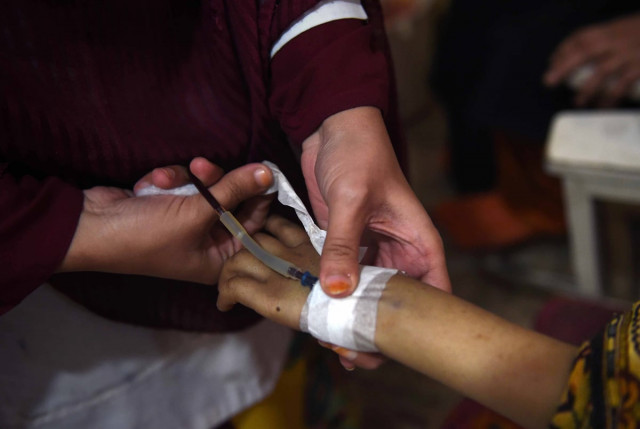Health dept yet to implement thalassaemia act
The act requires couples to be tested before marriage

The act requires couples to be tested before marriage. PHOTO: AFP
According to the bill, which was passed by the Sindh Assembly in January 2014, couples getting married would be required to be tested for the disease.
"It is obligatory for a nikah khuwan to ask for tests before solemnising the nikah," pointed out Mehdi Rizvi, the CEO of Muhammadi Blood Bank, while talking to The Express Tribune. "If the government announces a ban on pillion riding, the police come out to enforce it but they do not implement one of the major laws in the province."
Haematologist Dr Saqib Ansari added that if the law was implemented, the government and private organisations fighting the disease would be able to control it. "I don't understand why the implementation is being delayed."
Speaking at a seminar organised by the Omair Sana Foundation to observe World Thalassaemia Day on Friday, Dr Ansari, who is the foundation's general secretary, claimed that it costs Rs285,000 a year to treat a child with thalassaemia; with over 100,000 patients in the country, more than Rs28 billion are spent annually on managing the disease in Pakistan. Lamenting the lack of medical facilities in rural areas, he said that the life expectancy of thalassaemia patients in such regions was very short as compared to those living in urban areas.
Although The Express Tribune contacted Sindh health department officials, including public health special secretary Dr Khalid Hussain Shaikh, they were unable to explain why the department had not yet implemented the law in letter and spirit. Sources said that the rules and regulations had yet to be finalised.
Cure for thalassaemia
Dr Ansari also claimed that a medicine has been found to treat thalassaemia major. Sharing details about the research, Dr Ansari said that the medicine, hydroxyurea, had been administered to 3,000 children with thalassemia across the country. He revealed that the research began in 2002 in the National Institute of Blood Diseases, adding that the medicine had been used in other countries as well.
"With this medicine, 2,000 children who once needed two blood transfusions every month are living a healthy life," he claimed. "The drug was already in use to treat sickle cell anaemia."
Published in The Express Tribune, May 9th, 2015.



















COMMENTS
Comments are moderated and generally will be posted if they are on-topic and not abusive.
For more information, please see our Comments FAQ